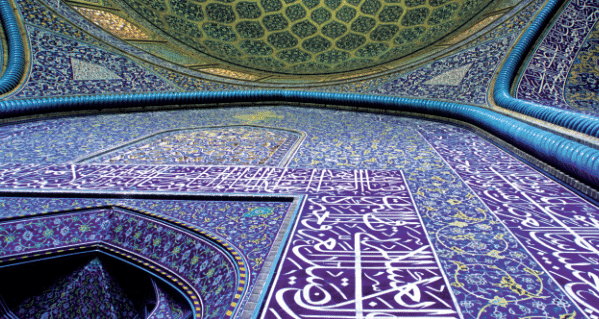Duties of Proximity: Towards a Theology of Neighbourliness
Duties of Proximity: Towards a Theology of Neighbourliness – Dr. Arif Nayed
In this paper, Aref Nayed argues that the way to improve societal relations and promote peace within and between communities is by developing the theological concepts of “neighbourliness” and “proximity”.
Dr Aref Ali Nayed is a Libyan Islamic scholar and the Libyan Ambassador to the United Arab Emirates.Nayed is the founder and director of Kalam Research & Media (KRM), based in Tripoli, Libya and Dubai. Until the outbreak of the revolution in Libya, he lectured at the restored Uthman Pasha Madrassa in Tripoli, and supervised graduate students at the Islamic Call College.
Nayed is ranked 50th among the top 500 most influential Muslims in the world.
Some of the Insights on Duties of Proximity: Towards a Theology of Neighbourliness from this article
Dr. Arif Nayed writes:
When a heart is alive and luminescent with God’s remembrance and is content to live according to His guidance, that heart is already an abode of peace—dar salam, and dar Islam. It is the faithful heart that can already, in this world, link up with and live in, longing for the eternal vision of The Peace. Such a heart is constantly drawing near towards that ultimate proximity that can only be achieved in the Hereafter.The interior abodes of peace in the hearts of the faithful are the essential seeds from which worldly peaceful environments grow, and through which the eternal abode is prepared for. Such interior abodes can live and grow within a multiplicity of worldly situations, and need not be, and cannot really be, limited to geographically delimitated zones of the world, ‘dar Islam’. The ‘Muslim World’ is the entire cosmos, and is no mere worldly empire! Every human heart, and even every creaturely sign (aya), that adores, remembers, and glorifies the One True God, is already an abode of peace, and is already a ‘Muslim world’!And:
…
Being alienated, estranged, unsettled, and always on-the-way is not a pathological state to be in. Rather, it is the very state of healthy Islamic living! We must stop lamenting alienation, and begin to realize that such alienation is a sign of healthy and righteous living. If we ever feel at-home and settled in any worldly abode, even if it happens to be an abode of peace, we are very likely to be in a state of temptation that distracts us from striving towards our true eternal peace.
And:
There is a very important lesson to learn from the often forgotten 1st Hijra. The Prophet Muhammad (peace be upon him) asked his persecuted early followers to seek refuge (jiwar) in the kingdom of Axum, ruled by a Christian king from Nagash (and hence the Arabic name: Najashi). King Najashi was a wise and noble host to his early Muslim guests. As a Companion of the Prophet (peace be upon him) put it: ‘When we resided in the land of Abyssinia we took refuge (jawarna) with a goodly and protective neighbour (jar), Najashi, he made us safe in our religion, and we were able to worship God without being harmed or hearing anything hurtful whatsoever.’
For the discernment of proper conduct towards others, the traditional discourse of ‘abodes’ was indeed very helpful in the past, and may still be helpful under certain conditions and situation. However, I would like to suggest here, for scholarly reflection, discussion, correction, and expansion, the idea that a fresh discourse of ‘neighbourliness’ and ‘duties of proximity’ may be more helpful in many situations in our world of today. The rights and duties associated with neighbourliness, what can be called ‘rights and duties of proximity’, are very important, and can be very helpful to us.
There is another important hadith that speaks of an even more basic duty:… the duty not to harm one’s neighbours. Prophet Muhammad’s judgement (peace be upon him), on a Muslim who harms his neighbour, be that neighbour Muslim or non-Muslim (as we saw above), is amazingly drastic. He says (peace be upon him):
By God, he does not believe! By God, he does not believe! By God, he does not believe! [The Companions said:] ‘Who is that, Oh Messenger of God?’ He said: ‘The neighbour whose neighbour is not safe from his mischief.’ They said: ‘Oh, Messenger of God: “What is his mischief?”’ He said: ‘His evil-acts (shar)’.
Being key to belief (iman) itself, the living-up-to-our-duties-of-proximity is actually nothing less than a ‘Categorical Imperative’. As a matter of fact that kind of righteous living is indeed expressed by the Prophet (peace be upon him) as a Categorical Imperative: ‘None of you will truly believe until he desires for his brother (or neighbour) what he desires for himself.’
